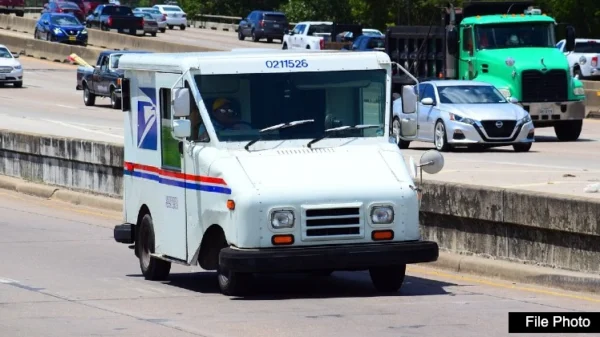For the first time in nearly two years, the U.S. Postal Service’s (USPS) Board of Governors (BOG) is poised to add a new member. On February 29, President Biden announced that he was nominating former Labor Secretary Marty Walsh to serve on the board.
Two BOG seats have been vacant since December and lawmakers have urged President Biden to hasten the nomination process and push for postal reform. Given the USPS’ soaring labor costs, nominating a union official such as Walsh to a postal leadership role presents significant risks. However, labor groups such as the American Postal Workers Union have some sensible ideas for America’s mail carrier to reduce costs, and Walsh can help bring these promising proposals to the table. It’ll take a variety of perspectives to keep the USPS delivering for taxpayers and consumers.
The USPS desperately needs a change in leadership. The agency reported a $6.5 billion loss for fiscal year (FY) 2023 and has lost more than $100 billion over the past fifteen years. As if those figures weren’t concerning enough, the USPS expects to shed another $60-70 billion by 2030. One key culprit of this fiscal malaise is the agency’s inability to keep labor costs under control. According to the USPS Inspector General (IG), the USPS spends more than $50 billion annually on labor compensation and benefits. Tacking on retiree health benefits, workers compensation, and pension payouts adds another $10 billion in annual costs.
Labor costs comprise nearly 80 percent of agency expenses, with transportation costs coming in a distant second at 10 percent. Despite being billed as a callous business executive hostile to labor groups, Postmaster General DeJoy has been pushing for converting part-time workers into (far more expensive) career employees. Cost-effective temporary holiday hiring has fallen by the wayside in favor of focusing on full-time hiring.
While it’s hard to say exactly how Walsh feels about current USPS hiring practices, his tenure as Labor Secretary under the Biden Administration offers insight. Walsh clearly disliked companies using independent contractors and pushed for costly reclassifications to force businesses to treat contractors as employees. Slated to take effect on March 11, Walsh’s proposed rule would not only raise costs on consumers but make it far more difficult for contractors to take advantage of flexible working conditions that come with filing a 1099 form. It’s unlikely, then, that Walsh will suddenly do a 180 and champion low-cost, temporary hiring initiatives at the USPS.
Having more union representation on the USPS BOG isn’t all bad. Postal unions have long been critical of “workshare discounts,” or about $15 billion-worth of discounts on postage the USPS extends to private businesses that perform mailing-related work (e.g., pre-sorting and bar-coding mail) on behalf of the USPS. The basic idea of farming out postal operations and allowing private players to pocket the savings is a solid one, but only if the postage discounts correspond to actual savings. Even though nearly 90 percent of market-dominant mail (i.e., letters and marketing mail) is work shared, the IG has found documented savings to be sorely lacking.
According to a February 2024 IG report, the USPS “does not have detailed procedures that document responsibilities for calculating avoided costs and workshare discounts for First-Class Mail and Marketing Mail letters and enable management to effectively monitor those control activities.” In addition, the USPS fails to regularly monitor data inputs that go into its workshare discount pricing models. In other words, the USPS is asking taxpayers and consumers to take a leap of faith and trust that it is properly extending $15 billion in discounts based on mailing companies saving the USPS money. As a union leader, Walsh is far more likely than his predecessors to push for more transparency in postal outsourcing.
Having Walsh on the BOG will be a mixed bag for America’s mail carrier and postal customers. The former Labor Secretary should look for ways to keep compensation costs under control and push for greater workshare accountability. Taxpayers and consumers deserve new postal leadership free from old, bankrupt ideas.
David Williams is the president of the Taxpayers Protection Alliance.






















